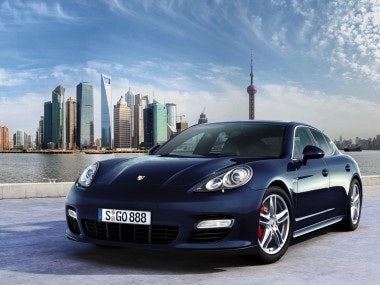First-Time Buyers Pony Up In Chengdu, Nanjing, Qingdao, Encouraged By Tax Cuts, Subsidies, Spending Power#

The AP writes today on the Chinese auto market, a crowded and contentious place that is now, according to the article, powered by sales in second- and third-tier cities in China's vast hinterlands. Although many outside of China will be unfamiliar with cities like Ningbo, Lanzhou, and Wenzhou, these small (by Chinese standards) cities still have untold numbers of prospective first-time buyers, on whom automakers both foreign and domestic are depending to ensure decades of continued growth in this still-new but already critical market.
As growing numbers of Chinese shop for their first vehicles, or trade up for newer models, sales in China's immense hinterland are booming, encouraged by tax cuts, government subsidies and growing consumer spending power.
In regions striving to catch up with relatively well-off coastal cities, families and small businesses are gladly swapping scooters and bicycles for the comfort and convenience of the automobile.
The supercharged growth has propelled China ahead of the United States as the world's biggest auto market and provided a lifeline for automakers like General Motors and Toyota Motor Corp. as sales crashed in other markets.
The government's role in spurring the market has been crucial but China's still low level of car ownership points to the potential for decades of strong growth even as some analysts warn the future holds tougher competition and dwindling profits.
To counter a slowdown late last year as the global financial crisis unfolded, the government halved taxes on purchases of small autos and is spending 5 billion yuan (about $730 million) on subsidies for purchases of light trucks and minivans in the countryside, where most of China's 1.3 billion people live.
Earlier this month, the purchase tax was raised to 7.5 percent, though subsidies also increased.
Happy with the results from this year's rescue package for the industry, Beijing is leery of risking a relapse, analysts say.
"The message sent by the government is that they will not let the auto industry weaken, especially not in 2010," said Jia Xinguang, chief analyst at China National Automotive Industry Consulting & Developing Corp., an investment management company.
One of the most important developments in the Chinese auto industry in recent years has been the gradual sophistication of buyers in smaller cities. Though top-tier buyers in Beijing and Shanghai -- many of whom are already on their third or fourth car -- know exactly what they want and have often become strongly brand-loyal, customer education outside these metropolitan centers is still new and owes much to the explosion in new domestic brands and more choice among foreign brands:
The proliferation in choice has made buyers more discerning.
"Before, it was a seller's market, and people would just buy whatever was available, but now they have all sorts of requirements," says veteran saleswoman Chen Lin, who moved to BYD, a battery maker that branched into automaking this decade, looking for new opportunities.
BYD's F3 compact is currently the country's best-selling sedan, and nine out of 10 of Chen's customers are first-time car buyers, though growing numbers of visitors to her brightly-lit dealership on the outskirts of town are looking to trade up to the automaker's F6 midsize sedan, she says.
"People in Sichuan are very practical. They are focused on value for money, not prestige. So our cars seem to suit the local market," Chen said.